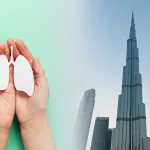To explore the future of healthcare, the importance of preventative care, and Gargash Hospital’s commitment to empowering women through healthcare services, MedEdge MEA spoke with Ghada Sawalmah, CEO of Gargash Hospital in UAE. In the conversation, Sawalmah emphasized the need for compassionate and comprehensive care, highlighting that transparency and trust are key to building lasting, sustainable patient-provider relationships. She also discussed the growing trend of patients in the UAE seeking local healthcare and shared her thoughts on how technology has the potential to transform the healthcare sector while preserving the human touch that is so essential to patient care.
MedEdge MEA: How does Gargash Hospital empower women through healthcare services like free screenings?
Ghada Sawalmah: Women experience unique challenges at different life stages, from biological to emotional changes, and need healthcare providers who show genuine empathy. Rather than mere sympathy, it’s crucial for providers to understand and address women’s specific concerns and intuition. Physicians should avoid rushing through appointments and take time to understand what truly matters to their patients, as personal struggles can have significant physical impacts. Encouraging this holistic approach can enhance care and support women’s health needs more effectively.
ME: Can you discuss the importance of preventative care in women’s healthcare and how Gargash Hospital integrates this into its services?
GS: Preventative healthcare has become increasingly important, creating a future-focused model that strengthens patient-provider relationships. Just as we prioritize fitness, children’s schedules, and other aspects of life, regular health checkups should also become a routine. These checkups keep patients aware of changes in their bodies, enabling them to address health concerns early rather than waiting until they require treatment.
This proactive approach also builds loyalty between patients and their providers, establishing an ethical and transparent partnership. Preventative care goes beyond just paying for a service; it’s about having a trusted guide who genuinely helps prevent serious issues. By focusing on preventative measures, healthcare providers support patients in leading healthier, more sustainable lives.
ME: What are the key priorities for Gargash Hospital in improving patient care and overall healthcare services?
GS: At Gargash Hospital, a key priority is providing transparent and ethical healthcare. Patients today, especially younger generations, are more informed and seek reliable sources beyond basic searches. Many explore online communities and seek second opinions, so hospitals must build trust through honesty and accuracy in their consultations. By promoting this transparency, Gargash Hospital ensures patients recognize and return for the trustworthy care they receive, aligning with the hospital’s core mission and values.
ME: A recent study shows expatriates in the UAE prefer local healthcare. What are your insights on this trend?
GS: I would say the main reason is the high standard of care here. In some countries, you might wait up to six hours in an emergency room; here, even the busiest facilities keep it much shorter. And if one place feels too busy, you have plenty of other options, especially in Dubai, where healthcare providers are widely available. Convenience is a big part of this appeal.
Another factor is the overall experience—the service, the aesthetics, and the way facilities are designed. When you walk into a place that’s welcoming rather than cold or overly clinical, it lifts your spirits. This is especially true in Dubai, where healthcare facilities aim for that extra step with calming colours, thoughtful layouts, and a pleasant atmosphere. And then there’s the quality of professionals here—many are highly trained expatriates who’ve made the UAE their home, creating real connections with their communities. With ultramodern equipment and facilities that feel inviting, the UAE offers a healthcare experience that feels more personal and supportive.
ME: How do you foresee the future of healthcare in 2050?
GS: I find it fascinating how technology is evolving so rapidly, bringing us convenience, efficiency, and effectiveness in ways we never imagined. But I firmly believe that no matter how advanced we get, the need for human connection is not going anywhere. It is just who we are—our genetic makeup requires us to interact with one another. Technology might enhance our lives, but it cannot replace the fundamental need we have for each other, especially when it comes to building a healthy society.
Preventative care goes beyond just paying for a service; it’s about having a trusted guide who genuinely helps prevent serious issues.
Looking at it from a tech perspective, I see a future where healthcare could involve something as revolutionary as full-body scans that diagnose and treat in one go. I mean, we are already seeing developments in this area. Sure, some doctors might lean towards things like genetic modifications, but from my point of view, the technology is moving towards non-invasive, all-in-one solutions that are just around the corner. The possibilities are endless, and it is exciting to think about what could be next.
Also Read: ‘‘Data Is A Critical Factor In Advancing Healthcare Discoveries’’
However, I cannot ignore the ethical questions that come up with some of these advancements. We have all heard about customizable babies, where you can tweak genetics for intelligence or appearance, and even artificial wombs where babies can grow entirely outside the human body. It is wild to think about, and maybe future generations like Gen Z and Gen Alpha will embrace these changes as part of their norm. But at the end of the day, I believe that for any society to be truly healthy, there has to be some level of human-to-human connection. Without that touch, we risk losing the emotional balance we all need, and I do not think any technology, no matter how advanced, can fully replace that.





















